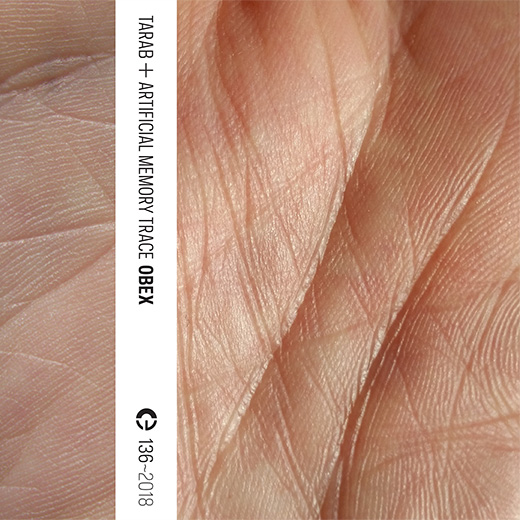Soon in Crónica: Vacuamoenia’s “Panphoniaâ€

Simon Whetham’s “Against Nature†reviewed by Oro Molido
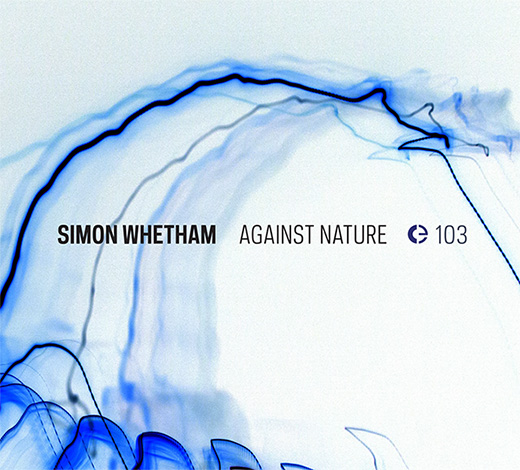
Para la realización de las bases sonoras de estas grabaciones, Simon Whetham se trasladó durante los meses de octubre a noviembre de 2013 a varios lugares de Noruega. Against Nature está dividido en cinco partes donde se explora el rango de frecuencias que va desde lo más extremo (parte 1), pasando por las bajas frecuencias que invitan al aislacionismo y a la melancolÃa (partes 2 y 3). A través de estas grabaciones de campo transformadas en el estudio somos conscientes de la nueva configuración y sentido que toman cada una de las partes. A veces nos sugieren un ambiente acuático en movimiento, otras una total plenitud entre la luz y las sombras. Esa transformación nos da la facilidad para crear imágenes en relación con esa época del año en Oslo, en donde la luz del dÃa nos seduce por muy poco tiempo. Pese a ello, un lugar tan especial donde las horas de luz y oscuridad pueden desencadenar un total desconcierto, alerta nuestros sentidos a una predisposición de aquello que se ve bajo el reflejo de las estelas luminosas en el cielo. Asà lo ha querido constatar en Against Nature, un reflejo de esas enigmáticas experiencias grabadas entre luces y sombras. El don de la naturaleza nos revela situaciones imprevisibles. Rogelio Pereira
via Oro Molido
Emmanuel Mieville’s “Juryo: Durée de la vie de l’ainsi-venu†reviewed by Oro Molido
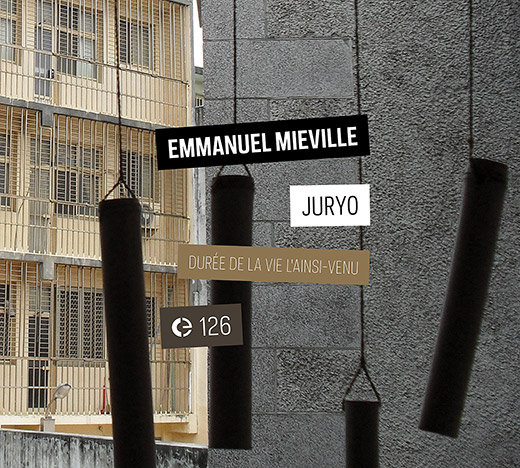
Afincado en la ciudad de ParÃs, Emmanuelle Mieville es un artista sonoro que trabaja en el ámbito de las field recordings que posteriormente mezcla y transforma hasta convertirlas en obras electroacústicas donde se explora la geografÃa del lugar. AsÃ, en Juryo nos traslada a lugares remotos y sagrados. Desde el Monasterio Copan en el Tibet, o una emisora de radio en FM en Hong Kong, hasta un viaje al Japón más ancestral con referencias a la danza Butoh, o los cánticos melancólicos y profundos de una ceremonia de funeral budista. La convivencia entre la tradición y la modernidad es un factor muy apreciable en la cultura nipona. En Juryo nos encontramos desde tÃtulos mutados por la obra de Antonin Artaud en su libro Heliogabale, a la descripción de la luna encantada como se decriben en los mitos fenicios. Una percepción aural que relaciona la vida urbana de las ciudades con la vida salvaje de los entornos sonoros más primitivos y ancestrales.
En cada una de las piezas contenidas en este trabajo, Mieville ha hecho uso de la sÃntesis modular analógica para realzar las texturas tÃmbricas, de tal manera que el resultado es un cine para los oidos. La inmersión sonora está asegurada si hacemos uso de unos buenos auriculares. Solo es cuestión de dejarse llevar por los sonidos y descubrir el rango de posibilidades sonoras que se encuentran contenidos en los distintos parámetros que conforman cada pieza. Estamos ante una obra ideal para ser emitida en la radio. En ese sentido, Mieville tiene siempre una idea preconfigurada a la hora de montar sus trabajos como programas radiofónicos que nos transportan a un lugar determinado en el espacio de las ondas hertzianas. Rogelio Pereira
via Oro Molido
Arturas Bumšteinas’s “Gamelan Descending a Staircase†reviewed by Oro Molido
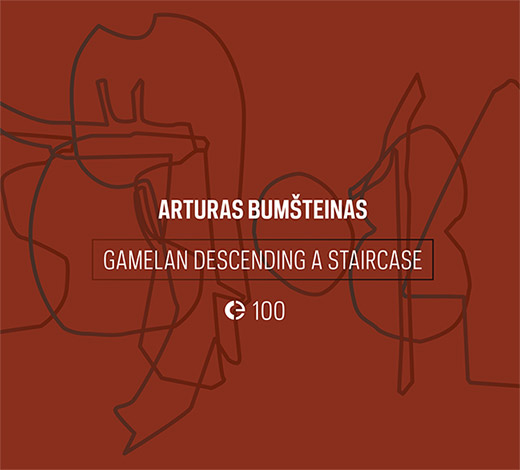
El gamelán es un término genérico que se aplica a un conjunto instrumental. Sus instrumentos más peculiares son los metalófonos de bronce.
Este trabajo que ahora nos presenta el artista sonoro de origen lituano Arturas BumÅ¡teinas, fue grabado en el Museo Etnológico de Dahlem (BerlÃn) en el transcurso de los meses de verano del año 2013. El tÃtulo del disco está relacionado con la obra Nude Descending the Staircase nº2, obra futurista realizada en óleo sobre lienzo realizada en 1912 por Marcel Duchamp. Se trata de una extensa composición de 50 minutos que explora la tÃmbrica de una amplia variedad de instrumentos que forman parte de las orquestas de gamelán que estuvieron disponibles para que Arturas BumÅ¡teinas y el músico balinés Ramunta Atnimar se dedicaran a tocar estos instrumentos de bronce tan peculiares. Unas veces golpeados con palillos, otras con mazas almohadilladas para producir sonidos agudos y amortiguarlos, la tÃmbrica de estos instrumentos nos transporta hacia formas musicales que van del chamanismo a la música popular, como sucede en el teatro de sombras de marionetas. Un viaje sonoro a Indonesia es lo que nos propone esta obra de Arturas BumÅ¡teinas, que estuvo asesorado sobre la práctica de estos instrumentos percusivos por el maestro Ramunta Atnimar. Un placer para nuestros sentidos. Un trabajo donde se reivindica el valor de una cultura como es la indonesia a través de sus instrumentos de gamelán, adaptándose a otras músicas occidentales bien sea a través de la fusión con otros instrumentos, o mediante la transformación con procesos electrónicos. A buen seguro que Marcel Duchamp estarÃa emocionado por este homenaje tan sentido a uno de los creadores más versátiles del siglo XX. Rogelio Pereira
via Oro Molido
New release: Monty Adkins’s “Moerorâ€
Music takes place in time, but repetition beguilingly makes it knowable in the way of something outside of time … it feels like a different way of inhabiting a passage — a different kind of orientation.
Elizabeth Margulis, On Repeat: How Music Plays the Mind
During significant events in our lives, time seems to stand still or at least pass a little slower. We replay moments over and over in our heads, re-examining every word, every look, every surrounding detail. In Moeror (latin for sorrow or grief), I examine how our memory of events is never perfect, sometimes we embellish, sometimes we mis-remember aspects, causing us eventually to question what is real and fabricated. In the piece, materials repeat, sometimes exactly, at other times with additional processing or temporally shortened, eventually leading to change. In Moeror, I want to explore Margulis’s concepts about why repetition is so psychoemotionally enticing even in melancholic works, and Joanna Demers’s notion that, “tragic art furnishes catharsis or purification … there is a thrill in anticipating the dissolution we know is in store… it is an exquisite tragedy always ending the same way.â€
The work is dedicated to Jóhann Jóhannsson and those we hold close in our memory.
- Composed by Monty Adkins
- Mastered by Taylor Deupree
- Cover image by Rob Lycett
Soon in Crónica: Monty Adkins’s “Moerorâ€

Simon Cummings’s “間 (ma)†reviewed by Blow Up
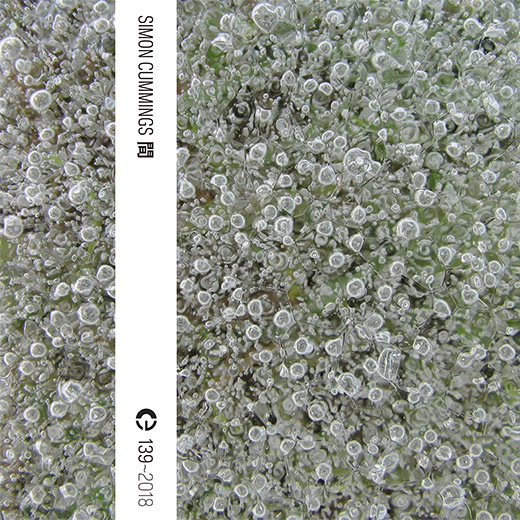
Il titolo viene da una parola giapponese (ma) che ha a che fare con parti e intervalli. Cummings in un periodo nero della sua vita ne approfitta per lasciar andare l’immaginazione tra forma e non-forma a partire da alcune registrazioni durante il culto in una chiesa anglicana. Il primo pezzo (i titolo sono lunghi e/ bizzati) ne è un buon esemplo: si parte da una potente campionatura di un organo che trapassa poi una specie di ambient narcolettica. Disco bello ma discontinuo, paradossalmente per una monotona struttura di fondo che tende a ripetersi (da calma a tensione e/o vice-versa). (7) Girolamo Dal Maso
New release: Simon Cummings’s “間 (ma)â€

Crónica is delighted to present Simon Cummings’s first release in the label, “間 (ma)â€, available as a limited release tape or stream and download.
The Japanese word 間 (ma) is one that is difficult to translate easily into other languages. The concept it embodies is a spatial one, specifically the gap between two discrete structural parts or elements, with associated connotations of an interval or pause. Steven Bindeman has described 間 as “the simultaneous awareness of form and non-form … Ma is not created by compositional elements, but takes place in the imagination of someone who experiences these elements. Therefore it can best be defined as the experiential place that is held by an interval.†As such, 間 is often regarded as an embodiment of ‘negative space’, where the apparent absence of substance or form or sound is rendered concrete and tangible.
Simon Cummings’ 間 cycle was developed during a dark and painful period of his life, a time when he was fixating upon silence, searching to find his artistic voice. His response took shape through meditation on the concept of 間, in which silence is not a simple absence or emptiness but rather becomes a focal point, with a shape, character, and energy that all contribute to a larger whole.
The composition process began with recordings made during the traditional Anglican service of Evensong. Everything was then removed from the recordings with the exception of the brief silences that fall between the various sections of the service, fragments of sound capturing echoes, resonances, and glimpses of ambience. These fragments were then used as the sound palette for a series of improvisations that formed the basis for each of the pieces in the cycle. They were subjected to extensive processing and sculpting, and are only occasionally heard in their raw state.
The concept of é–“ implies a certain degree of tranquility and calm, but the emphasis in this music is focused on connotations of negativity. Put simply, this is angry music, veering between nervous, fretful twitching and unbridled, distorted ferocity. Rage and obsession are recurring traits throughout, manifesting in harsh, acidic, repetitive clatter and throbbing pulses, and even in the more quiet passages the music is designed to emphasise tension, unrest and a pervading sense of ominous dread. Listening through headphones or in an extremely quiet space is especially recommended due to the quiet and subtle material that features in some of the pieces.
Simon Cummings is a composer, writer and researcher based in the Cotswolds, UK. He composes instrumental and electronic music, both of which focus upon gradual processes of transformation. His acoustic work involves highly intricate algorithmic processes rooted in carefully-defined behaviours, the music emerging from stochastic relationships in which these behaviours are juxtaposed and intermingle. His electronic music explores the juxtaposition of noise and pitch, reappraising what defines each and their boundaries. Cummings studied composition, conducting, and organ at the Birmingham Conservatoire, at graduation being awarded the Creative Studies composition prize. Aided by a substantial grant from The Countess of Munster Musical Trust, Cummings undertook the Sonology and Masters degree programmes at the Institute for Sonology at the Royal Conservatory in The Hague, at the same time studying privately with Richard Barrett in Amsterdam. He has recently completed a Ph.D. in composition at the Royal Birmingham Conservatoire under the supervision of Richard Causton and Howard Skempton. The primary focus of his research is the exploration and development of new algorithmic and stochastic approaches to musical composition. When not composing, Cummings is an accomplished writer about new music; he is the author of contemporary/avant-garde music blog 5:4 and contributes to assorted print and web journals.
é–“ (ma) is available as a limited-release tape and as a download.
Simon Cummings’s “間 (ma)†reviewed by Rockerilla

La riduzione del suono a un grado zero prossimo al silenzio rappresenta il fulcro della ricerca applicata nel suo ultimo lavoro su cassetta da parte di Simon Cummings. Improntata fin dal titolo al concetto di vuoto, designato dal concetto estetico-filosofico giapponese “maâ€, l’opera consta appunto di una sequenza ininterrotta di intervalli, pause e interstizi, espansi fino a inglobare emissioni di frequenze ai confini della percezione. La ciclicità del processo seguito dall’artista inglese rispecchia così l’alternanza di antonimi entro la quale gli spazi vuoti sono collocati, offrendo una declinazione ambiziosa di un’ambience meditativa, SURREALE. Raffaello Russo

